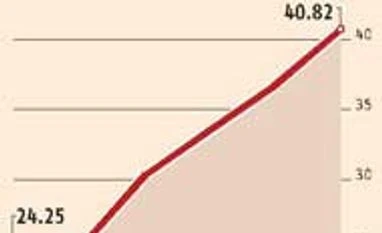Around 20,000 of FCI's 25,000 employees have been part of the stir, demanding better pension, among other things. Under a work-to-rule, only the minimum of stipulated work is done, nothing more.
There are already signs of a slowing in movement of rail rakes, exacerbated by a drop in the number supplied by Indian Railways to FCI.
Senior FCI officials say they've managed to keep the Public Distribution System (PDS) operating by dipping into stored grain. "Usually, on an average, we move around 3-3.5 million tonnes of grain a month, both within a state and outside. This had dipped to 2.7 mt in November because of the agitation, which we are trying to compensate in December and January," said one.
"In November and December, evacuation of paddy is more as this is the peak procurement season. We're managing by engaging more railway rakes."
However, the railways appear to be giving more priority to demand from other sectors such as cement and fertiliser. This situation is expected to continue till at least next month. "We have raised this issue with the highest authorities in the railways and are trying to find a solution to this," a senior official said.
He said there had been some assurance but he couldn't say when it would normalise. From the start of October till December 19, around 611 rakes of foodgrain were dispatched by FCI as against 935 in the same period last year.
Inter-state and intra-state movement of foodgrain is crucial for smooth operation of a nationwide PDS. In 2012-13, around 40.8 mt was moved in this way, as compared to 36.79 mt the year before, a rise of 11 per cent.
FCI moves grain through railways and roads; it has begun experimenting with movement through riverine routes.
)